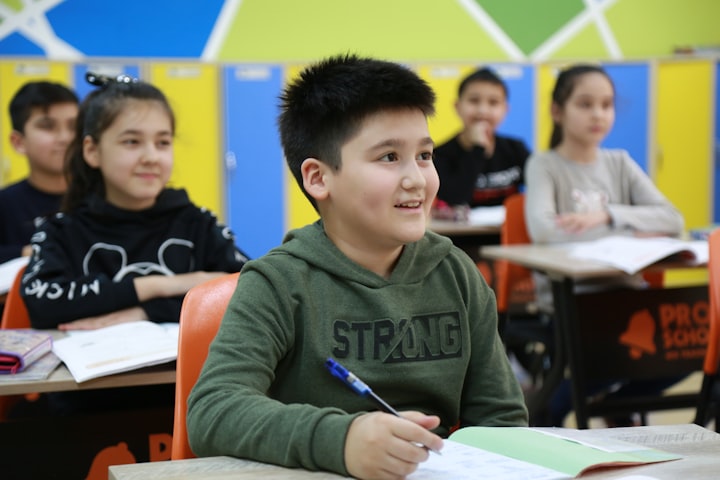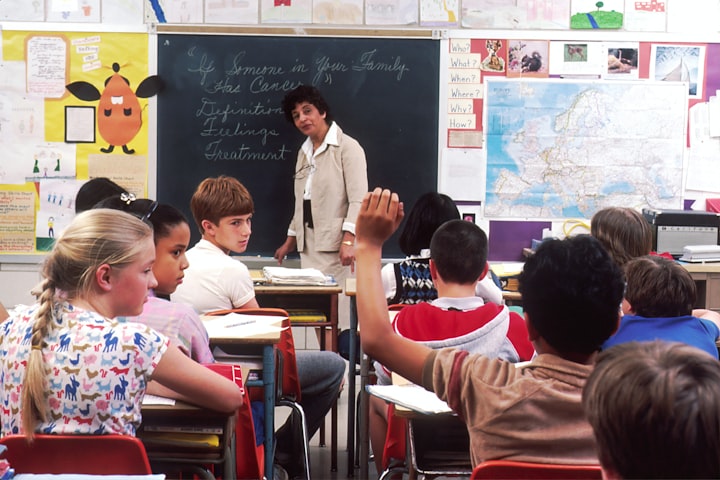
‘Children should be seen and not heard!’ as a wicked glare would pierce us. I remember these scenarios distinctly, as an elderly extended family member would glare at us down her bespectacled nose.
We were merely running wild as children do and enjoying ourselves, but they brought our enthusiastic zest for life and high energy joy to an abrupt halt.
I recall being wet with sweat from chasing my cousins and friends around the garden and through the house and the stern warning that I need to ‘slow down and calm down.’ the other favourite parenting slogan reverberates in my mind. ‘After laughter comes tears.’ How many times we actually proved that one correct, which always frustrated me.
‘I told you, kids, to stop running and now look, Darren has hurt himself, because you are all just too wild….’ And once we had fulfilled their prophecy, I would tune out, as I knew now that the fun had ended.
We were now going to be watched by hawkish older relatives, and they would mete out the punishments to those of us who went against the conventional wisdom. There would be a loss of certain privileges or a burning rear end, depending on who caught us not adhering to the new tyranny that had taken hold of our fun world.
Children brighten up our lives and also, make us so mad, they surprise us and keep us on our toes. Children are precious and bring out the absolute best in us and sometimes the worst too.
They are the leaders of tomorrow and need to be nurtured and protected to develop their cognitive abilities to reach their full potential.
What always fascinates me about children is how active they are physically and mentally. I remember years ago they asked some top-level rugby players to mimic the actions of a toddler for two hours, it was a simple training session, just to mimic the actions of a toddler at play, and these fit players found it exhausted them, after just two hours of ‘toddler training.’
Perhaps that’s why toddlers live at full speed and then drop off to sleep so rapidly, there is no pacing themselves, it’s all or nothing, with these little ones.
If there are some descriptors for children, I think you’ll find these apply; messy, inquisitive, impressionable, noisy, excitable, enthusiastic, energetic, playful and emotional.
The blessing and joy, and complexity and challenges that come with children, often lead us down a path of discipline and control. Children need structure and discipline, but we always need to remember as much as we like to think of them as ‘mini-adults,’ they aren’t.
What is conventional wisdom? What does it mean?
The Merriam-Webster Dictionary defines it as, ‘the generally accepted belief, opinion, judgment, or prediction about a particular matter.’
Now with children much of the conventional wisdom is not from the child’s perspective but what is convenient for the adult. Of course, adults need to guide children, but in doing so, we must not smother them, or restrict them so that they cannot experience life, and learning. Some challenges to conventional wisdom have arisen in the areas of brain science and I spell out the top line thoughts below.
Conventional wisdom says that children need to sit still, but brain science disagrees with that and confirms that children need to move.
Conventional wisdom says that children need to control their emotions, but brain science confirms that children need help in regulating their emotions.
Conventional wisdom says children should look but not touch. Brain science confirms that children learn through exploration and tactile senses.
Conventional wisdom says children should share, but brain science confirms that children need help to understand the needs of others.
Conventional wisdom says that children should pay attention, but brain science confirms that children need the practice to master and remember new skills.
Brain science confirms that the rational frontal lobe of the brain does not fully develop until the age of 25.
With the science clearly confirming the conventional wisdom, is in fact not wisdom.
In the words of the song ‘Greatest Love of All’ made famous by Whitney Houston.
“I believe the children are our future
Teach them well and let them lead the way
Show them all the beauty they possess inside
Give them a sense of pride to make it easier
Let the children’s laughter remind us how we used to be”
‘Teach them well, and show them the beauty they possess inside… a sense of pride…’ All of this flies in the face of the so-called ‘conventional wisdom.’
My disclaimer once again, I still believe that children need structure and discipline, to keep them safe, however within that structure and discipline, they need to have the freedom to explore and experience and learn and receive guidance. And they need to move and run and play, and discover and get hurt and get messy, and get dirty and be loud.
About the Creator
Dean Gee
Inquisitive Questioner, Creative Ideas person. Marketing Director. I love to write about life and nutrition, and navigating the corporate world.






Comments
There are no comments for this story
Be the first to respond and start the conversation.